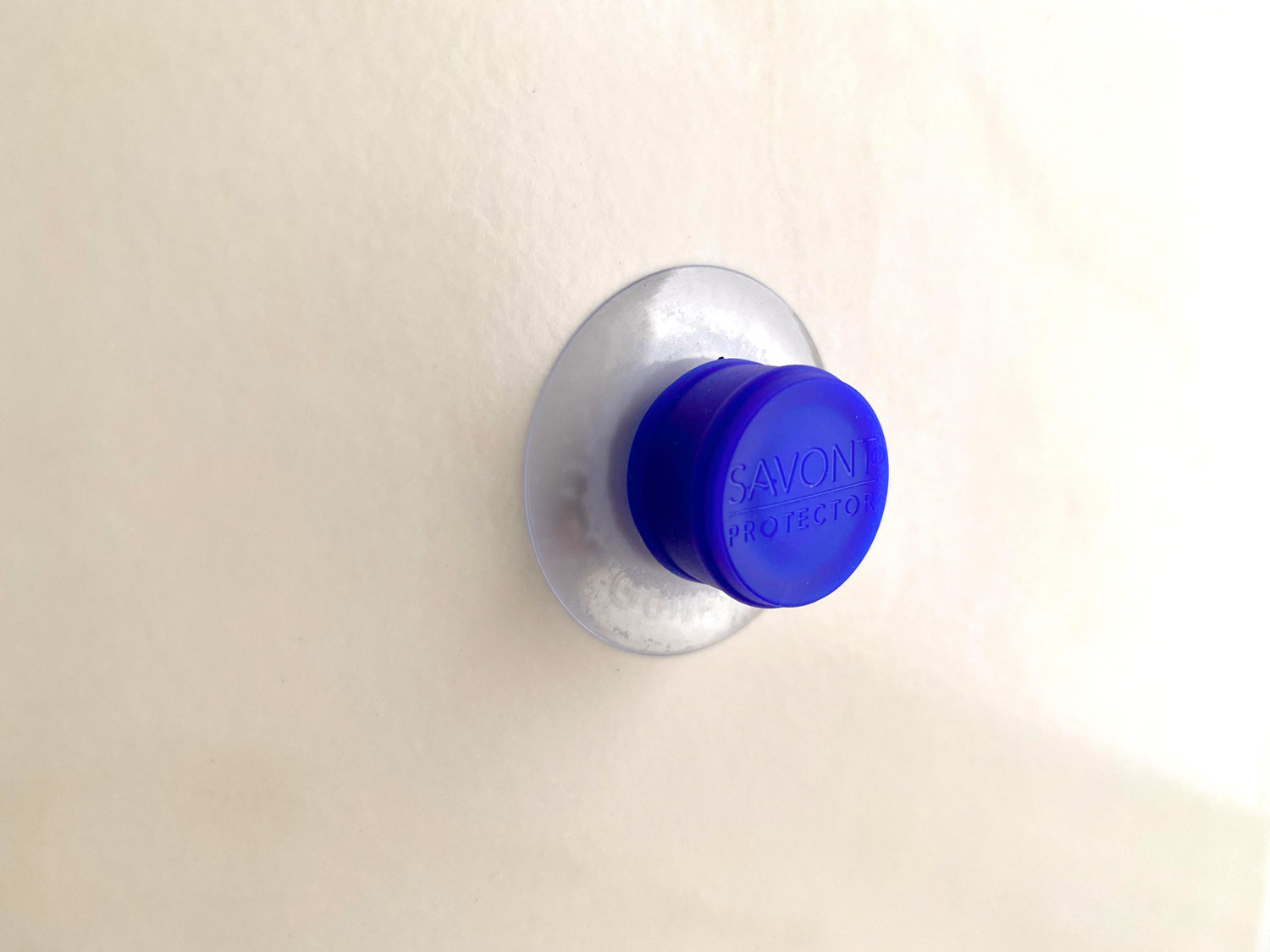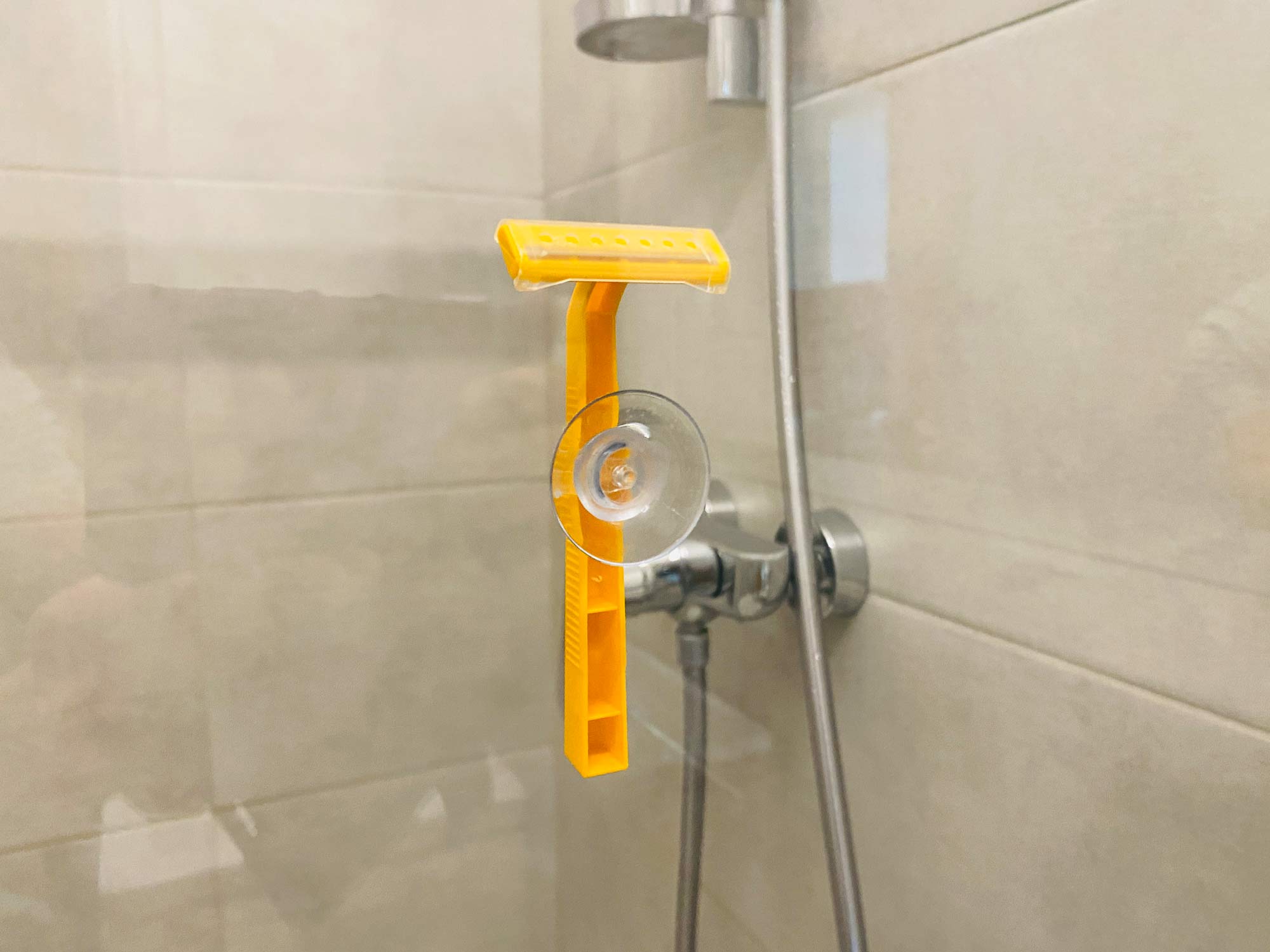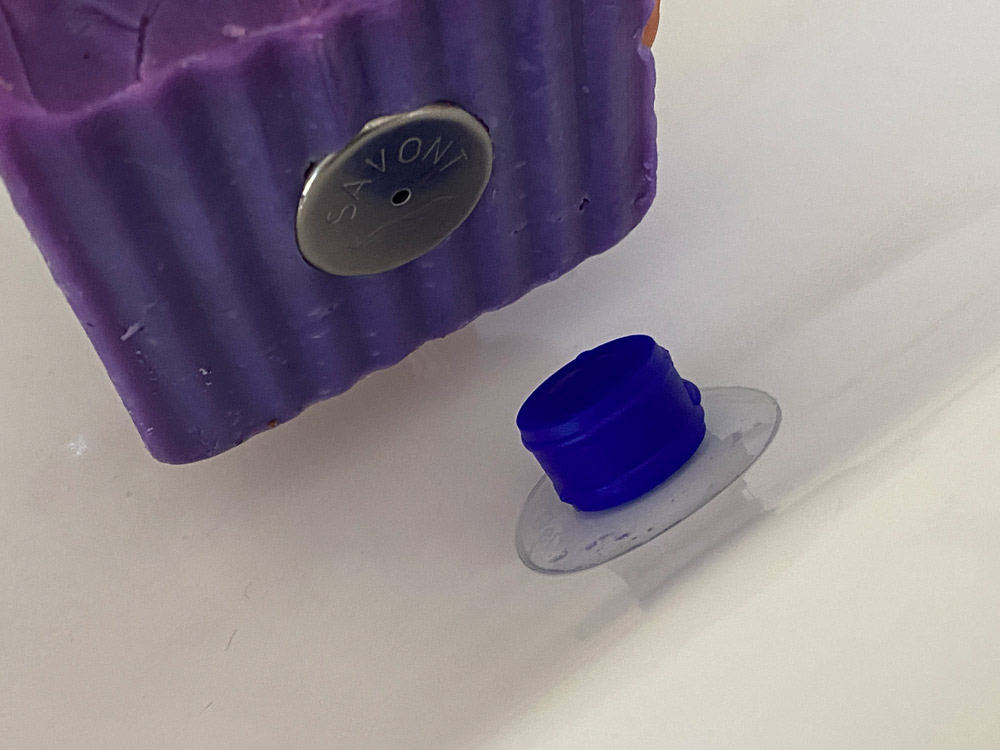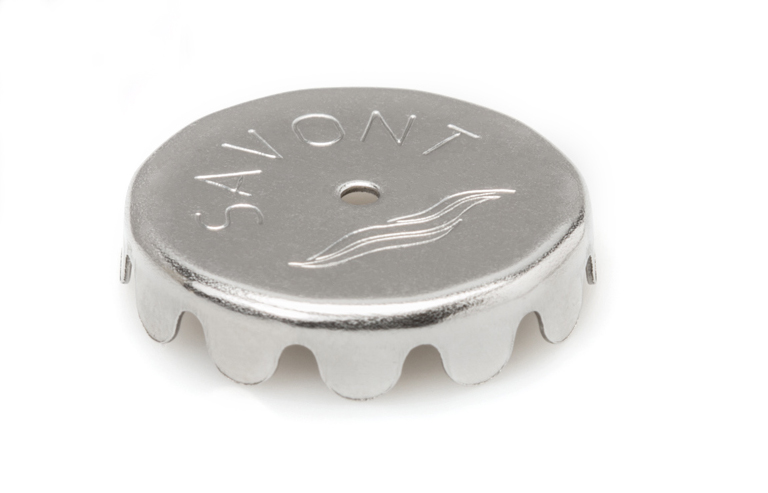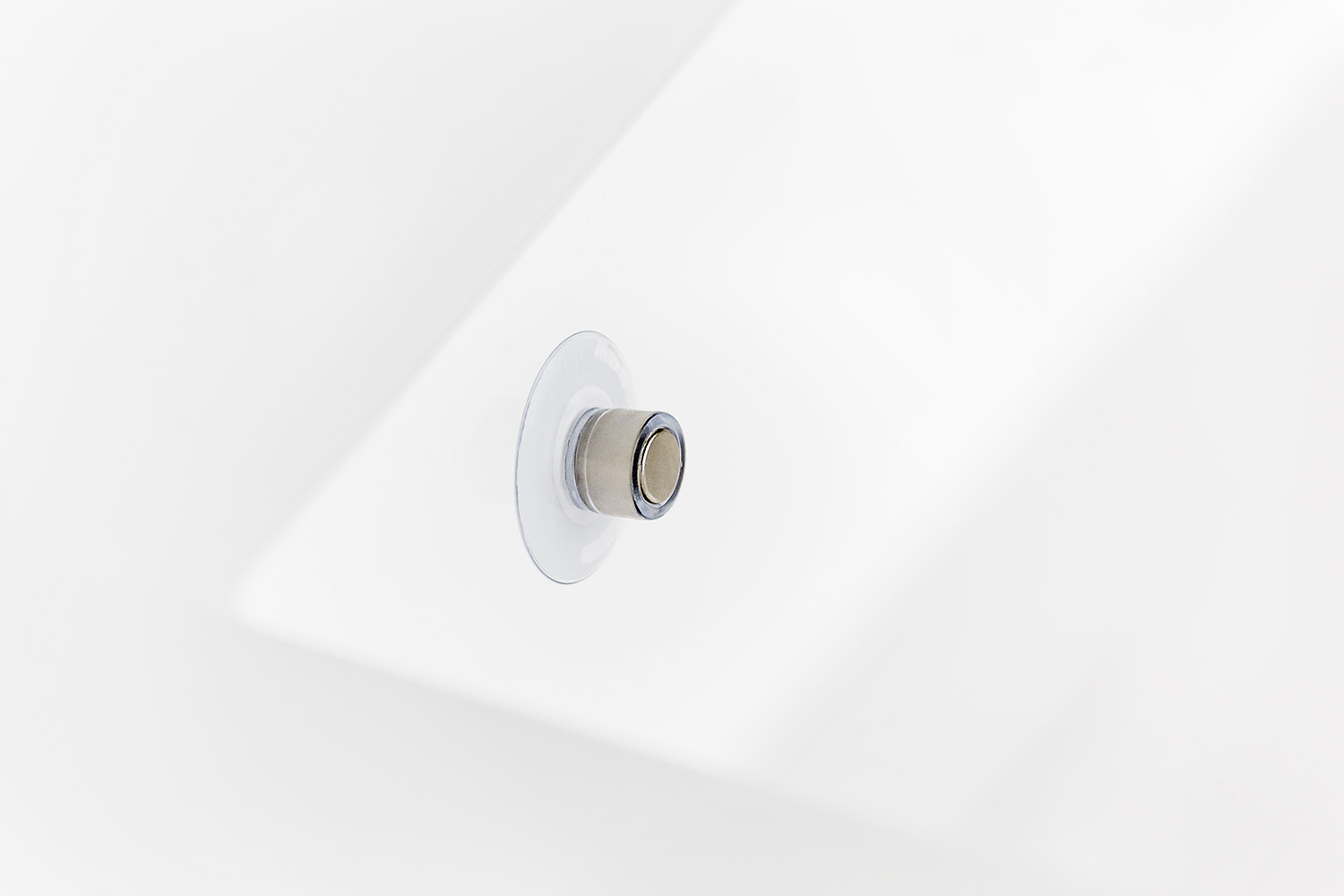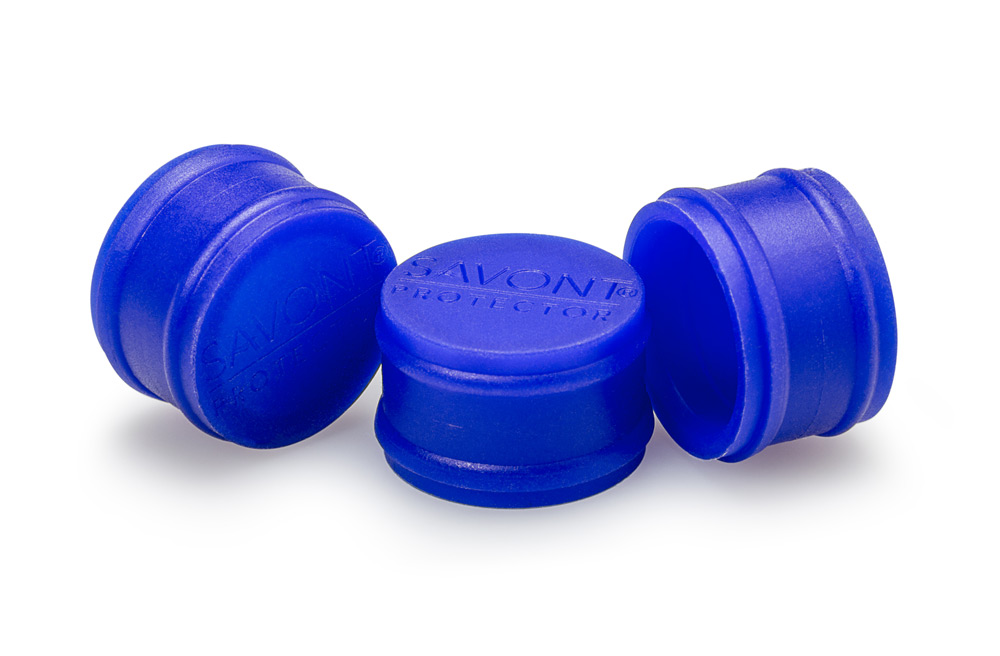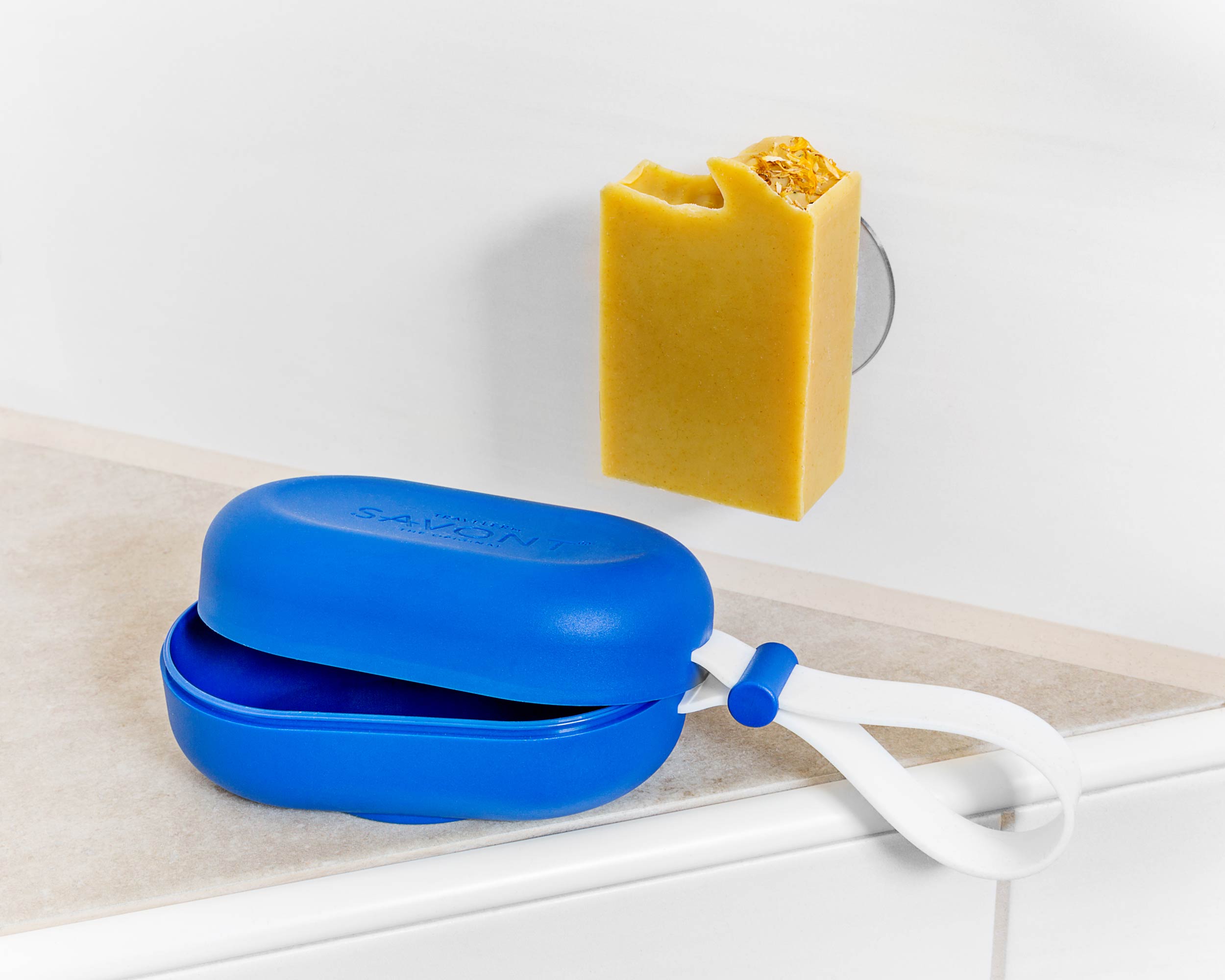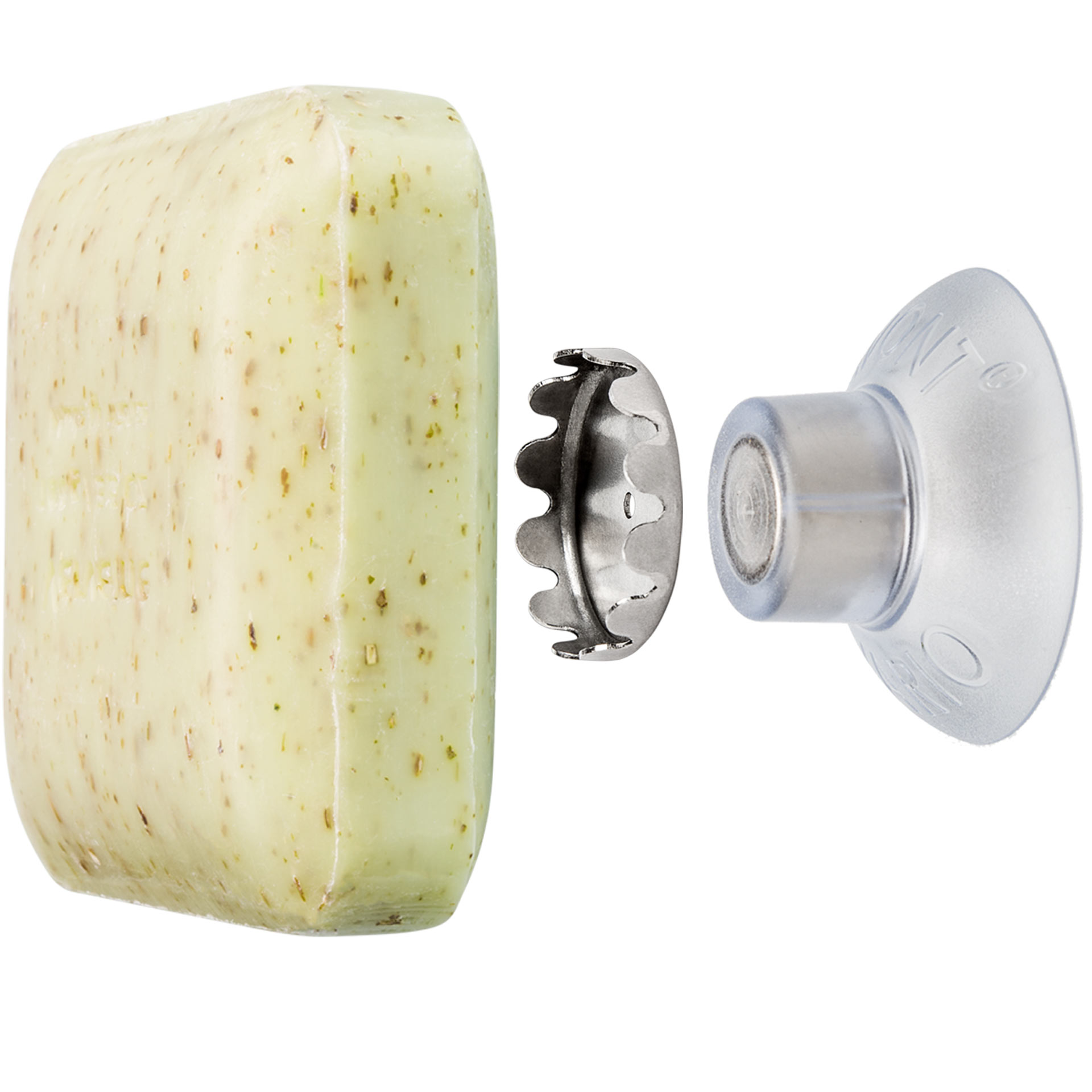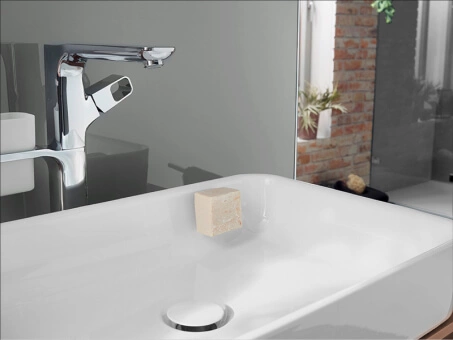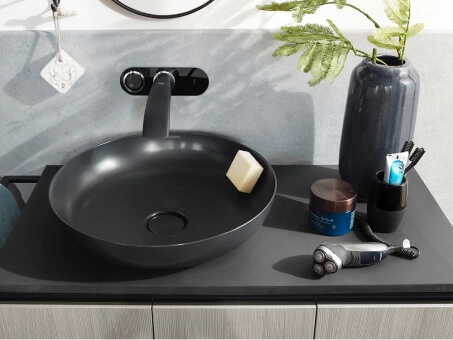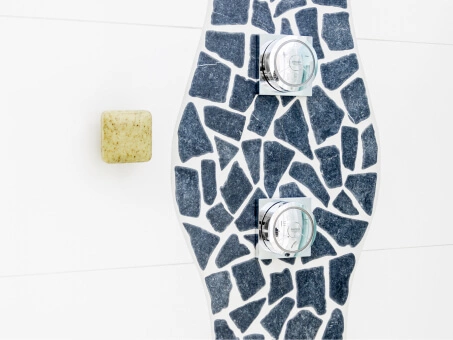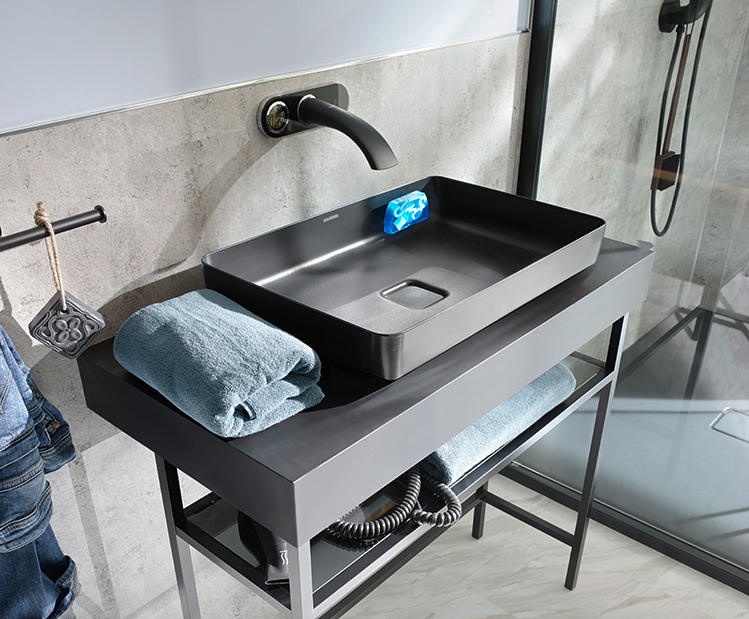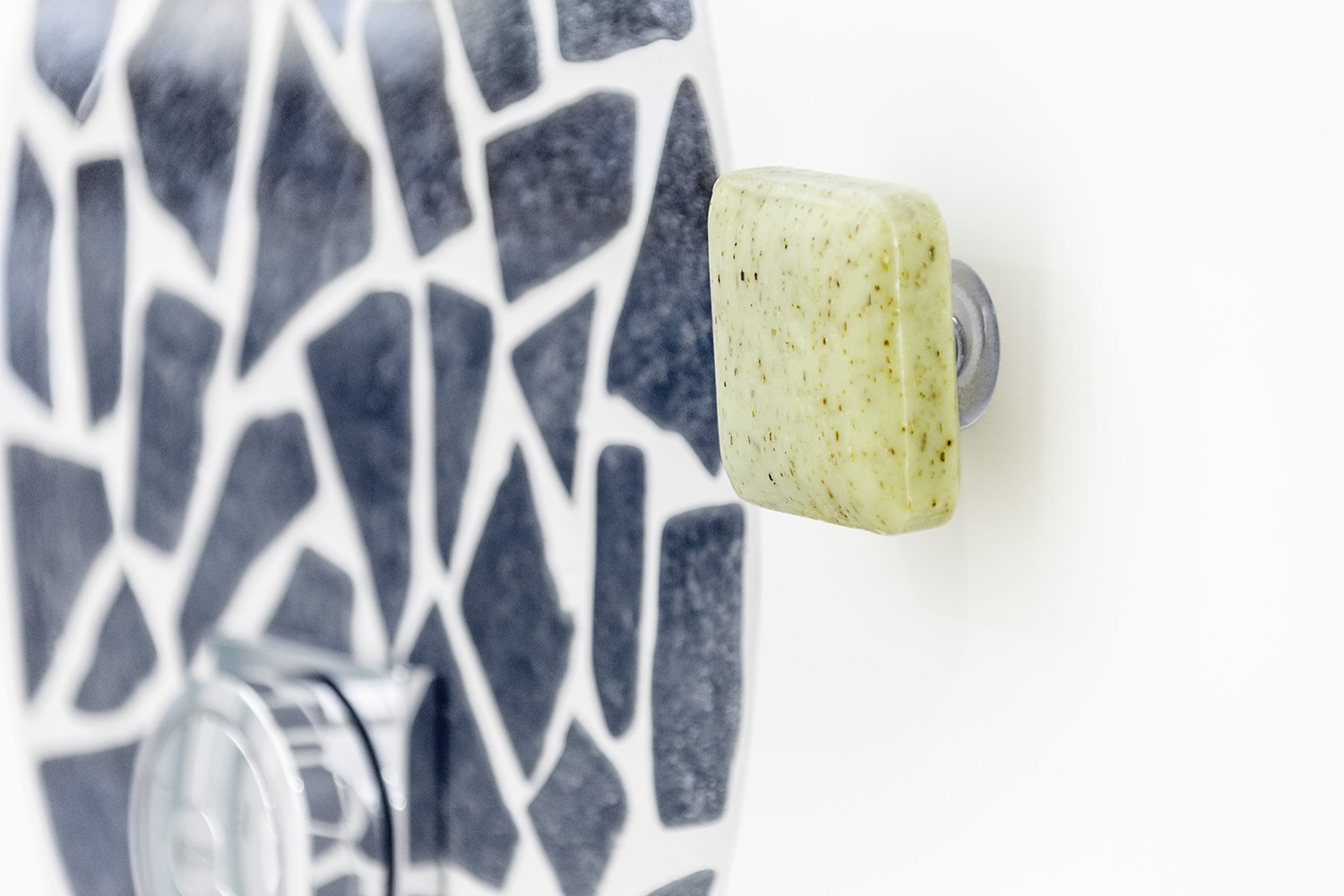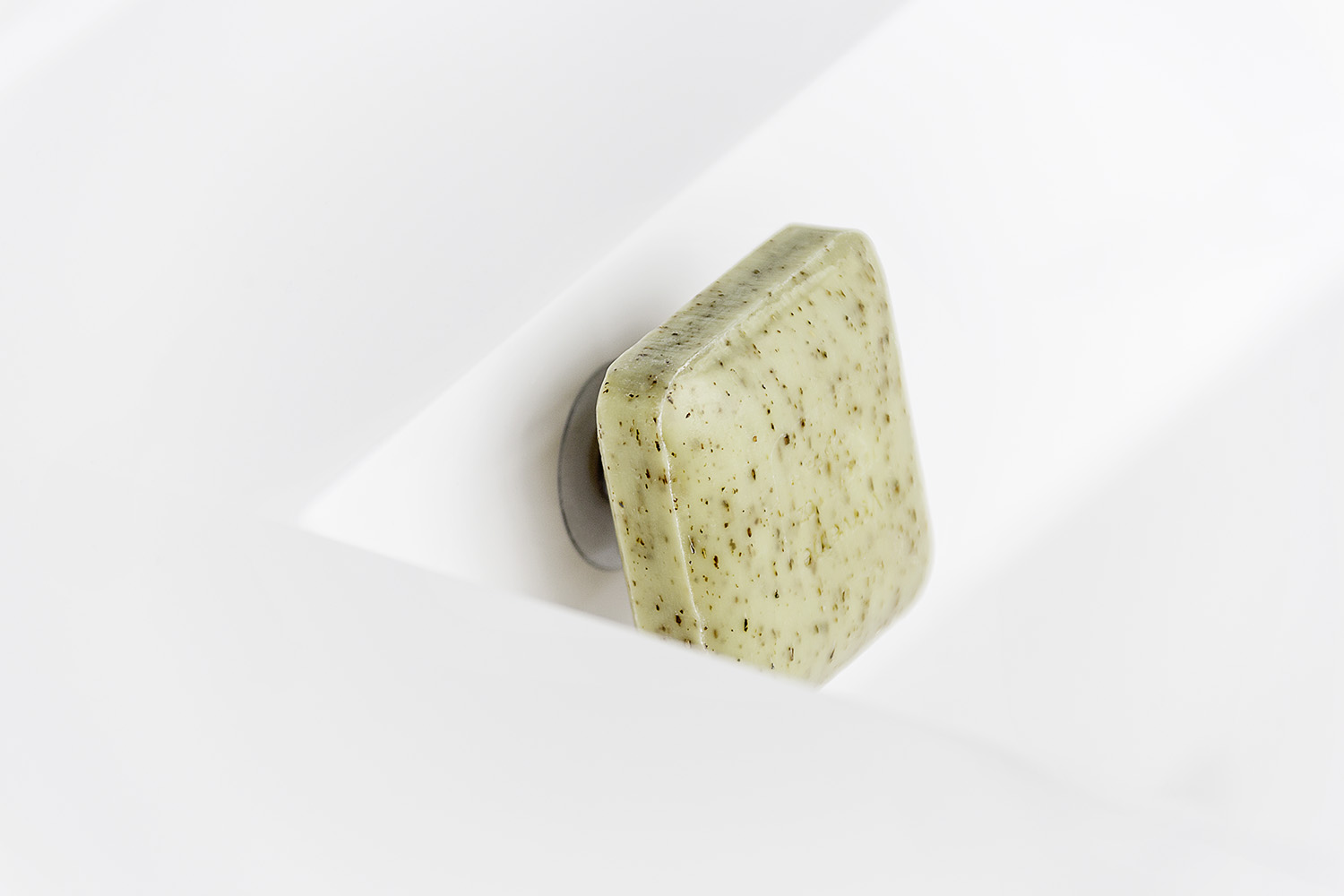FAQ
FAQ, tips & tricks for suction cups, magnetic soap holders and soaps
Here we offer solutions to any challenges with our innovative products, including magnetic soap holders, suction cups and soap holder magnets. If you have any specific concerns or questions that are not covered here, please do not hesitate to contact us at info@savont.de. We will be happy to help you so that you can enjoy your SAVONT soap holder for a long time to come.
The suction cup does not hold
Attach the suction cup to a mirror or a glass surface. If the suction cup holds there permanently, it is technically okay.
Suction cups unfortunately do not adhere on natural stone, e.g. non-enameled natural stone washbasins, natural stone tiles, marble and mineral cast washbasins. Marble and mineral cast feel smooth, but have a slight roughness that allows air to diffuse through.
Avoid sliding the suction cup in the sink in the glued state. Over time, the surface of the vacuum side gets small scratches due to the friction on the dry limescale, through which the suction cup can no longer seal.
Since it always remains clean under the suction cup, you can simply leave it stuck on when cleaning the sink!
If the suction cup comes into contact with water too often, the previously transparent material turns milky white and also becomes slightly harder. However, the suction cup will change back again when the prolonged contact with water decreases. Attach the suction cup in an area where it has less contact with water.
Improve the holding power of the suction cup
Heat the suction cup or magnetic suction cup with a hairdryer, also the place where it is to be mounted and then attach it. The suction cup will expand due to the heat. When mounted, it cools down again and creates additional mounting tension on the surface.
You can also heat a suction cup without magnets in warm water or for a few minutes at the lowest temperature in the oven. Dry the suction cup if you have used warm water and then mount it.
A suction cup will not stick to a rough surface as it cannot seal. By using an adhesive dot, however, you can create a smooth surface on which the suction cup will hold.
You can also use a double-sided adhesive dot: the hold will be very firm, but also definite. If you want to remove the suction cup again, residues of the adhesive may remain on the sealing side when the suction cup is removed from the adhesive dot, depending on the type of adhesive. The suction cup will no longer be able to seal.
The soap bar detaches from the soap
If the soap is very hard, it may be difficult to press the soap button deep enough into the soap.
It is recommended to soften the soap for 1-2 hours on a soaked sponge. Put the soaked sponge also in a plate filled with water, so that water can constantly draw into the sponge. When 2-3 mm of the soap layer are softened, press the soap button into the soap until all room between the lower surface of the soap button and the soap is filled with soap material. In this process, soft soap material also extrudes out through the center hole. Now you can let the soap dry.
Do not use any shock-like strokes. Your soap could break and this would damage the soap button.
The soap softens slightly during use and then dries again. If the soap softens, the grip of the soap bar in the soap is reduced. If it hardens again, the soap bar hardens again in the soap material.
However, if the soap does not have the opportunity to dry sufficiently, the magnetic force can cause the soap bar to detach from the soap. For example, if the soap is constantly in use in a multi-person household. In this case it is advisable to use a protector. This makes it easier to remove the soap from the soap holder and reduces the tensile force on the soap bar, although the maximum load capacity is not reduced.
This problem can also be solved by attaching two soaps, as each soap is used less and can dry again.
If the soap is very soft, the soap button can find less hold in the soap material.
Use a protector, as this reduces the pulling force on the soap button. However the maximum load capacity of the soap holder does not decrease.
Tilt the soap to release it from the holder instead of pulling it vertically off the magnet. This also reduces the pulling force on the soap plate.
The soap button rusts
Please check if you have an original SAVONT soap button. You can easily recognize this on the SAVONT stamping on the top side.
We have carried out our own research to select the material we use for our soap bars. The stainless steel we use is 100% rust-proof on all soaps. We do not use coatings that wear off after a certain time, but our steel itself is resistant.
We are aware that other soap bars develop rust, especially on industrial soaps, but this is not the case with our soap bars.
The magnet rusts
The magnets are coated with a rust protection layer. A strong impact or the collision of two magnets can cause the protective layer to crack. The magnet then begins to rust at this point.
In our final inspection, every single magnet is checked by us. If a magnet has a crack, we sort it out. However, if we have overlooked a defect, then the magnet can rust.
But the problem can be solved completely with the help of the Protector.
Apply the protector designed by us onto your soap holder
Protector
By placing the Protector onto your Classic soap holder, the soap will return softly onto your soap holder, without noise. Also, the soap is easier to remove, which is important when the bar of soap gets smaller.
The load capacity of the soap holder is the same as the Classic Edition without Protector, and even slightly higher. The minimum load capacity is 150g and goes up to 200g when the soap is rather flat.
For solid shampoos and fragile soaps, the magnetic force can also be reduced by inserting a paper disc between the magnet and the Protector. This allows to reduce the magnetic force on the soap.
The protector seals the magnet, which means that it has no contact with moisture and water. Thus, we are not only dependent on the rust protection layer of the magnet. The magnet thus remains like new forever.
Traveler soap box
The Traveler soap box is made of recyclable PP.
We often get asked why we did not use stainless steel? Stainless steel comes with two problems: the energy input and the lacking rust resistance.
If you add the energy required to cast, roll and mold steel, the energy required to make it from PP is far less. In addition, the PP can be easily shredded, remelted and injected due to the separability of our soap box into its components. Due to its flexibility, the PP also performs the function of opening the soap can via lateral pressure on the outer wall.
Another advantage is the resistance of PP and permanent applicability in contact with soaps. Soap boxes made of sheet metal and also stainless steels will rust in being constantly contact with soaps. This can also be seen on the many soap buttons that rust, unless a very high grade stainless steel has been used.
SAVONT uses a particularly high-quality stainless steel for its soap plates, which is resistant to constant contact with soap. However, this would be too expensive for a soap box, in addition to the high energy input.
The Traveler soap box is sufficiently tight to travel safely with your favorite soap.
A circumferential tongue and groove, which also guarantees the automatic closing and opening mechanism, sufficiently seals the box. A wet, dropped soap can be placed in the soap box and no moisture will leak out.
However, waterproof for transporting liquids, as in a bottle, the Traveler soap box is not.
Do you want to take several soaps with you on your travels, but only have one Traveler soap box?
This is possible: in the Traveler soap box there is enough space for two smaller soaps. If you have two Classic suction cup soap holders, you can place them next to each other in the soap box and fix both soaps onto them!
The Traveler soap box has all parts connected to each other via the loop: Upper and lower part of the soap box, as well as the connector. The connector is the sliding element on the loop.
The connector can also not be lost, because it can not be pulled off completely, thanks to a central bar.
VARIO soap holder
In our experience, the VARIO suction cup sometimes folds the outer edge of the suction cup upwards during transportation. During installation, the suction cup does not suck in, but jumps upwards. Folding it over has caused a deformation, as a result of which the suction cup no longer seals. We apologize if this is the case for you.
This fault can be rectified by bending the outer edge of the suction cup back in the correct direction. Hold the suction cup with the magnetic opening facing downwards. Cover it with adhesive tape so that the outer edge is pressed down. Leave the suction cup in this position for 2 days so that it returns to its correct shape. Then remove the adhesive tape and attach the suction cup to a flat surface. Alternatively, the suction cup can also be attached directly with the wrapped adhesive tape; the adhesive tape exerts a counterforce and prevents it from folding over. This does not look good, but the soap holder holds and the adhesive tape can be removed after 2-3 days.
If you need further assistance, we are at your disposal.
We did our own research in order to select the right material for our soap buttons. The stainless steel we use is 100% safe against rust being in contact with all kinds of soaps. We do not use coatings that wear off after a certain amount of time, but our steel itself is resistant.
We are aware that other soap buttons develop rust, especially when being in contact with industrial manufactured soaps. This is not the case for our soap buttons.


